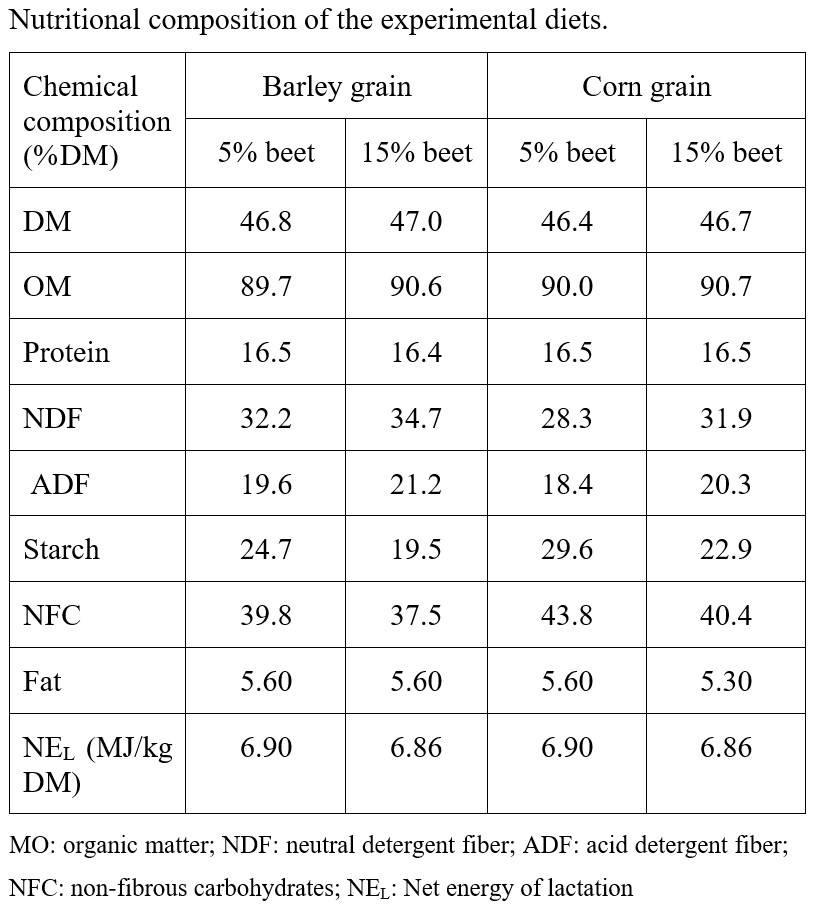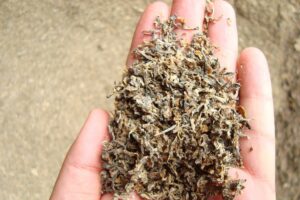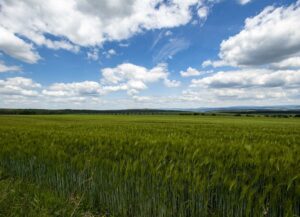Maria Villagrasa & Nuria Garcia
With low forage quality, the diets of high-producing cows should be supplemented with large amounts of concentrate. However, this can have negative consequences by increasing the risk of acidosis — due to increased degradation of starch in the rumen — and other digestive disorders that can interfere with livestock’s productive efficiency.
Therefore, it is necessary to find strategies that decrease the starch content of dairy cow diets without compromising intake and total energy concentration. Replacing part of the grain with feedstuffs high in soluble fiber, such as beet pulp, can help alleviate acidosis and positively influence cow’s well-being.
Beet pulp is a co-product obtained after processing beets for sugar extraction. Its low lignin concentration and highly digestible fiber improve dry matter (DM) intake in high producing dairy cows.
Beet pulp has a high concentration of soluble neutral detergent fiber (NDF), particularly pectin. Pectin digestion produces less lactate and propionate and more acetate than starch fermentation in the rumen, which favors fat synthesis in dairy animals; it also does not interfere with the digestion of cellulose and hemicellulose and can be digested more quickly than fiber. It has also been shown that in combination with cereal grains, beet pulp can decrease the starch content in the diet and improve ruminal health without producing adverse effects on milk production.
To this effect, a group of researchers (Nemati et al., 2020) conducted a study to test the effects on metabolism and performance of replacing barley and corn with increasing amounts of beet pulp in the diet of high-producing dairy cows.
Eight second-calving Holstein cows were used that were randomly assigned to one of 4 diets containing two grains with different starch fermentation (barley or corn) and beet pulp at two concentrations (5 or 15% DM):
Diets:
- Barley with 5% beet
- Barley with 15% beet
- Corn with 5% beet
- Corn with 15% beet
Beet pulp in the diets replaced similar amounts of grain (barley or corn) on a DM basis, and the diets were formulated to contain similar concentrations of energy and protein. The proportion of forage to concentrate in all diets was 35% to 65% MS.

As noted above, cereals are high in starch and low in fiber which can cause acidosis, so the addition of beet pulp was expected to change the concentration of both nutrients. In this case, it was possible to reduce starch concentration (27.2 vs. 21.2% DM in low and high beet pulp diets, respectively) and increase the NDF content (30.3 vs. 33.3% MS) as the percentage of beet pulp in the diets increased.
The inclusion of beet pulp did not affect DM intake, however, cows fed corn diets showed higher DM intake than those fed barley diets (27.8 vs. 26.3 kg/d).
Adding more beet pulp to the diets increased milk fat
Milk production was not affected by the inclusion of beet pulp, but it changed depending on the type of grain in the diet; corn-fed cows produced more milk than barley-fed cows (fat-corrected milk: 41.0 vs. 39.2 kg/day; energy-corrected milk: 44.1 vs. 42.1 kg/day).
An increase in milk fat production was observed in both corn-fed cows (1.47 vs. 1.38 kg/day, corn vs. barley) and in diets with 15% beet pulp (1.47 vs. 1.39 kg/day, 15% vs. 5% beet pulp). Protein production was also higher in corn-fed cows (1.38 vs 1.31 kg/day).
The concentration of milk urea nitrogen was not affected by treatment and on average was 15.4 mg/dL.
Effects of beet pulp on rumen fermentation
In diets with 15% beet pulp, rumen pH increased compared to diets with 5% beet pulp (6.38vs. 6.20); similar results were observed for ruminal acetate (59.9 vs. 57.7%).
Both the increase in rumen pH and the production of acetate support the increased production of milk fat observed in this study. In fact, acetate is an important precursor for milk fat synthesis in the mammary gland, and improving ruminal pH can prevent milk fat depression.
Moreover, total volatile fatty acid concentration in the ruminal fluid and the acetate/propionate ratio were not affected by the treatments.
Conclusions
Increasing beet pulp in dairy cow diets improved ruminal pH and milk fat production.
It was also observed that, in general, corn-fed cows consumed more DM and produced more milk and milk protein than those fed barley, regardless of the beet pulp content of the diets.
Reference
Nemati, Morteza & Khorvash, Mohammad & Ghorbani, Gholam & Hashemzadeh, Farzad & H. Ghaffari, Morteza & Nasrollahi, Sayyed Mahmoud. (2020). Effects of substitution of beet pulp for different grains (barley or corn) in the diet of high-producing dairy cows on feeding behavior, performance, and ruminal fermentation. Journal of Dairy Science. 103. 10.3168/jds.2020-18308.
© 2020 Dairy Knowledge Center. All Rights Reserved.







